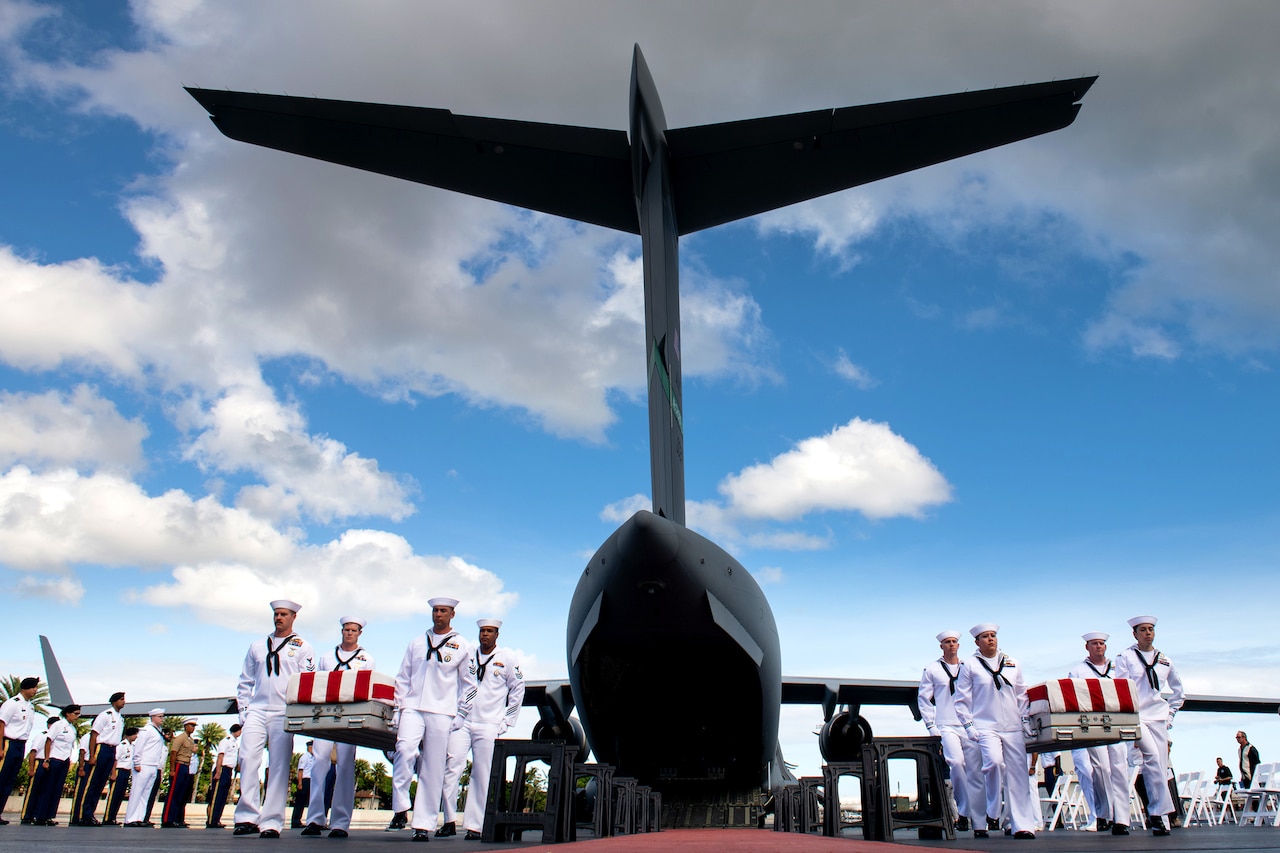Trump's Army Secretary Pick Is a Former Cavalry Officer, Yale Classmate of JD Vance

President-elect Donald Trump has named businessman and Iraq War veteran Dan Driscoll as his pick for Army[1] secretary, signaling his goal of reshaping traditional leadership in the Pentagon.
"Dan brings a powerful combination of experiences to serve as a disruptor and change agent," Trump said in a statement Wednesday, highlighting Driscoll's unconventional background as an asset for the role.
Driscoll, a political adviser to and former university classmate of Vice President-elect JD Vance, has an eclectic background and atypical resume, serving just a brief time in the Army before leaving service for the Ivy League. He earned a law degree from Yale University before launching a career in investing, business consulting and political advising. He also made an unsuccessful run for Congress in 2020, finishing far behind in a crowded Republican primary field in North Carolina.
Read Next: Air Force's New Deployment Model Sparks Criticism, Staffing Concerns at Bases[2]
While Driscoll has an extensive business resume, he has never led a large organization, particularly one as vast as the Army with its nearly one million soldiers across the active duty, National Guard[3] and reserve, as well as almost 300,000 civilian employees.
If confirmed by the Senate, Driscoll is poised to succeed Army Secretary Christine Wormuth, the first woman in the job, who has served for nearly the entirety of President Joe Biden's administration -- a notable stretch in a position often defined by turnover. Wormuth's tenure provided an unusual degree of stability in the Army's top civilian leadership, a role historically marked by a revolving door of interim appointments and short-term stints.
It's unclear how Driscoll would lead the Army. The service is in the midst of an especially transformative time, shifting from the era of post-9/11 wars to rebuilding its doctrine and formations to expand its footprint in the Pacific to counter China's growing influence.
In a 2020[4] interview with Jewish Insider, Driscoll said he was "terrified" of polarization in D.C., particularly when it comes to national security matters. "That's a place where, I think, as a veteran in particular, I am uniquely well-suited to work across the aisle to keep Americans safe," he said.
He pushed back on early Republican saber-rattling to impeach Biden[5] over his son's business dealings in Ukraine, saying impeachments are generally undemocratic.
"A lot of voters are disappointed that their elected leaders seem to be attempting to use such an aggressive tool in a way that can cause such trauma to the system," Driscoll said.
He was commissioned through the Army's Officer Candidate School, or OSC, after graduating from the University of North Carolina at Chapel Hill with an undergraduate degree in business administration in 2007.
Driscoll served in the Army from August 2009 to March 2011. He was a cavalry officer with the 10th Mountain Division at Fort Drum[6], New York, deploying to Iraq in 2009 before leaving the service as a first lieutenant. His awards include an Army Commendation Medal, Ranger tab, and the Combat Action Badge.
Following his military service, Driscoll attended Yale Law School, where he forged a close relationship with Vance, becoming a key supporter and political ally of the former Ohio senator. As a student, he did legal training at Guantanamo Bay[7], Cuba, saying in an interview with the Yale Law Report at the time, "It was fascinating getting to see the other side of some of our military actions in Iraq and Afghanistan."
He went on to serve as an intern for the Senate Veterans Affairs Committee and later for Chief Judge Alex Kozinski on the U.S. Court of Appeals for the 9th Circuit. Kozinski resigned[8] in 2017 amid a scandal involving more than a dozen complaints of sexual harassment and abuse against female law clerks.
In 2020, Driscoll mounted a long-shot congressional bid in North Carolina's 11th District to replace former Rep. Mark Meadows, who was Trump's chief of staff during his first term. Driscoll placed sixth in a crowded 12-candidate Republican primary field that ultimately led to the election of Madison Cawthorn -- a polarizing firebrand conservative whose single term in Congress was marred by scandal.
Driscoll's nomination reflects Trump's broader pledge to disrupt Washington's entrenched norms, including in military leadership. Trump's unconventional choices include John Phelan[9], a financier and GOP mega donor, for Navy[10] secretary despite his lack of experience.
Similarly, Trump's embattled pick for defense secretary, Pete Hegseth, has drawn scrutiny[11] for his past of alleged sexual abuse, infidelity and heavy alcohol use. A National Guard veteran who left the service as a major, Hegseth's career did not involve the upper echelons of military leadership, a departure from the typical qualifications of recent Pentagon leaders.
Related: Trump Picks Big Donor with Background in Finance and Little Experience with the Military for Navy Secretary[12]
© Copyright 2024 Military.com. All rights reserved. This article may not be republished, rebroadcast, rewritten or otherwise distributed without written permission. To reprint or license this article or any content from Military.com, please submit your request here[13].
 The battleship USS Maryland was damaged by Japanese armor-piercing bombs during the Dec. 7, 1941, surprise attack on Pearl Harbor, Hawaii.
The battleship USS Maryland was damaged by Japanese armor-piercing bombs during the Dec. 7, 1941, surprise attack on Pearl Harbor, Hawaii.
 Heroic efforts of the crew of the battleship USS Tennessee saved the vessel from sinking and anti-aircraft gunners were credited with shooting down five Japanese aircraft during the surprise attack at Pearl Harbor, Hawaii, Dec. 7, 1941.
Heroic efforts of the crew of the battleship USS Tennessee saved the vessel from sinking and anti-aircraft gunners were credited with shooting down five Japanese aircraft during the surprise attack at Pearl Harbor, Hawaii, Dec. 7, 1941.
 The battleship USS Oklahoma disinterment and identification project at the Defense POW/MIA Accounting Agency has succeeded in accounting for all unaccounted-for personnel from the USS Oklahoma lost on the morning of Dec. 7, 1941.
That morning, a fleet of
The battleship USS Oklahoma disinterment and identification project at the Defense POW/MIA Accounting Agency has succeeded in accounting for all unaccounted-for personnel from the USS Oklahoma lost on the morning of Dec. 7, 1941.
That morning, a fleet of